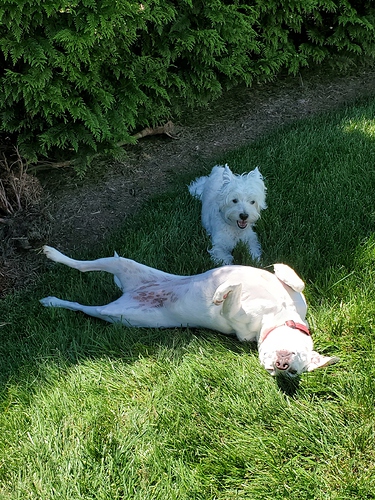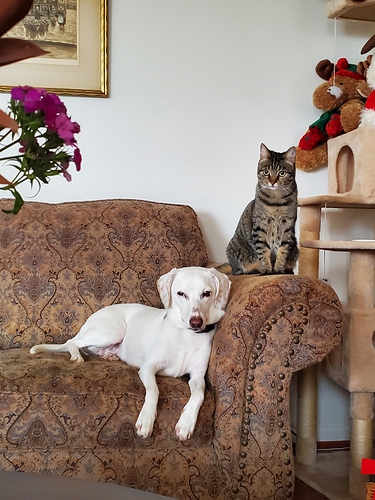Jazz can get a little overexcited around new dogs but she generally has an excellent temperament. I’ve never seen her show any aggression towards other dogs. I don’t think food aggression would be a problem with her because she literally lets the cats push her away from her food and steal the toys she’s actively playing with.
In fact, she offers her toys to the cats and is always so disappointed when they won’t play tug-of-war. She needs a dog to play with.
Sex of puppy aside, the challenge will be for me to identify the personality in a puppy that will work with my household. But I very much appreciate everyone’s input! It sounds like it is very often fine to introduce a new female but it can also go very badly wrong.
Regarding breed, her sire was pure beagle and her dam was mostly pit bull with a bit of beagle/mutt genetics. I can’t begin to make any assumptions about her behavior and so far, she’s pretty much shown all the positive stereotypical traits and virtually none of the negative. I love beagles, but who’d have thought a beagle would excel at obedience? 
(Marie is very much the boss of the household. Dog included.)
ETA: and yes, I understand that her behavior with the cats would not necessarily mean that she would behave the sane way with a female dog sharing the house. She lets her male “cousin” who sometimes visits steal her food and toys, too, and she has has always backed down for both male and female dogs if they’ve gotten irritated by her exuberance.


 She’s the one on her back.
She’s the one on her back.

